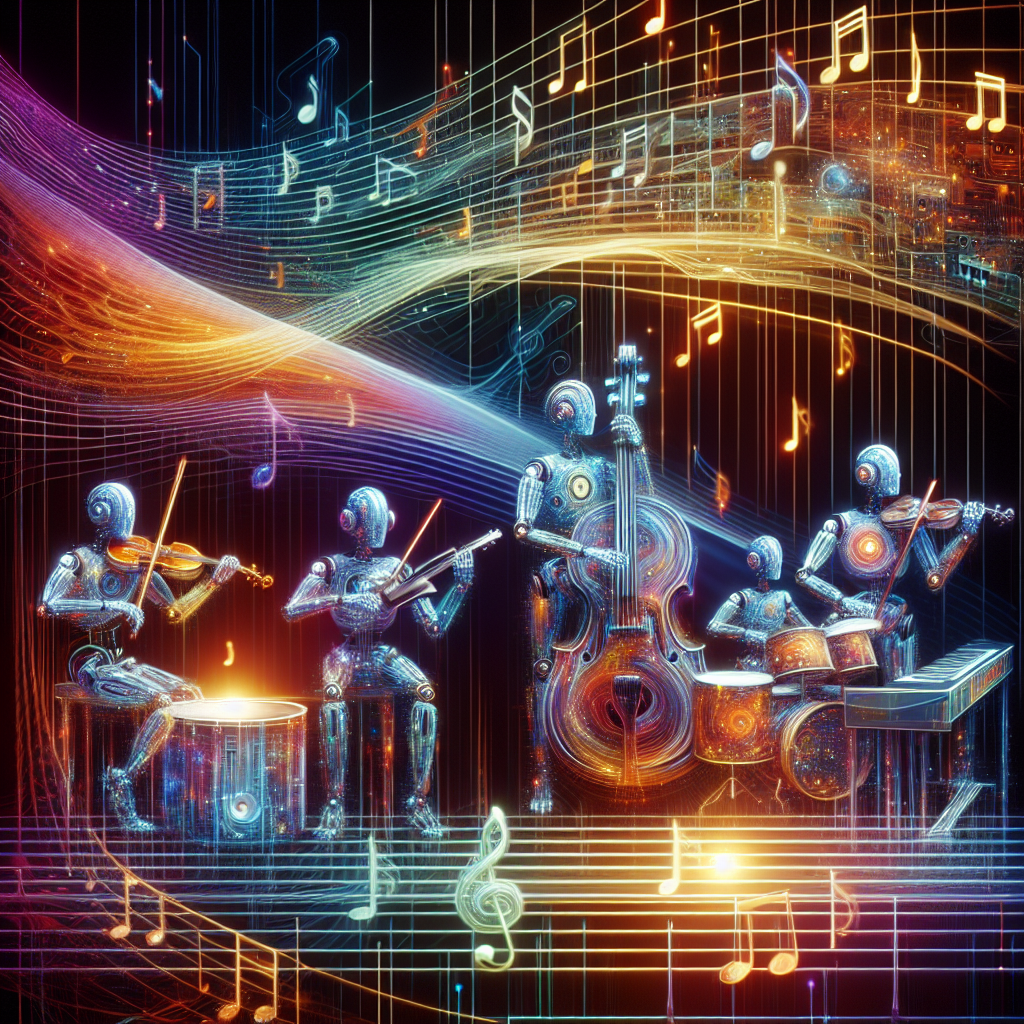The Rise of AI-Generated Music
In recent years, the music industry has seen a significant shift with the rise of AI-generated music. Artificial intelligence has made it possible for computers to compose, produce, and even perform music, leading to a new era of creativity and innovation in the world of music.
AI-generated music is created using algorithms and machine learning techniques that analyze vast amounts of data to generate original compositions. These algorithms can be programmed to mimic the styles of different composers, genres, or even create entirely new sounds that have never been heard before.
One of the key benefits of AI-generated music is its ability to speed up the creative process for musicians and producers. Instead of spending hours or even days trying to come up with new melodies or chord progressions, AI algorithms can generate multiple options in a matter of seconds. This can be a game-changer for artists looking to experiment with new sounds or push the boundaries of their creativity.
Another advantage of AI-generated music is its ability to democratize the music-making process. With AI tools becoming more accessible and user-friendly, anyone with a computer and an internet connection can create music without the need for expensive equipment or formal training. This has opened up new opportunities for aspiring musicians and producers to showcase their talents and reach a wider audience.
AI-generated music has also sparked debates about the future of creativity and the role of human musicians in the music industry. Some argue that AI-generated music lacks the emotional depth and soul of music created by humans, while others see it as a tool for collaboration and inspiration. Ultimately, the rise of AI-generated music has raised questions about the nature of creativity and what it means to be a musician in the digital age.
Despite the potential benefits of AI-generated music, there are also concerns about its impact on the music industry. Some worry that AI algorithms could replace human musicians and lead to a homogenization of music, with algorithms generating formulaic songs that cater to popular trends. There are also ethical concerns about copyright and ownership of AI-generated music, as well as questions about the authenticity and integrity of music created by machines.
In response to these concerns, some musicians and producers are embracing AI as a tool to enhance their creative process rather than replace it. By using AI algorithms to generate ideas or inspire new compositions, artists can push the boundaries of their creativity and explore new sonic possibilities. This collaborative approach to AI-generated music has the potential to revolutionize the way music is created and consumed in the future.
FAQs:
Q: Can AI-generated music be considered authentic or original?
A: The authenticity and originality of AI-generated music are subjective and open to interpretation. While AI algorithms can generate original compositions based on data inputs, some argue that true creativity and emotional depth can only come from human musicians. Ultimately, the value of AI-generated music lies in its ability to inspire and collaborate with human creators rather than replace them entirely.
Q: How is AI-generated music changing the music industry?
A: AI-generated music is revolutionizing the music industry by speeding up the creative process, democratizing music-making, and raising questions about the future of creativity and human musicianship. While some see AI as a threat to traditional music-making, others see it as a tool for collaboration and innovation that can push the boundaries of what is possible in music.
Q: What are some examples of AI-generated music?
A: There are numerous examples of AI-generated music being created and released by artists and producers around the world. Some notable examples include the album “Hello World” by AI-generated band Taryn Southern, the AI-generated soundtrack for the video game “Minecraft,” and the AI-generated compositions created by the OpenAI MuseNet platform. These examples showcase the diverse range of music that can be created using AI algorithms.
Q: What are the ethical concerns surrounding AI-generated music?
A: Ethical concerns surrounding AI-generated music include questions about copyright and ownership of music created by machines, as well as concerns about the impact of AI algorithms on the music industry and the role of human musicians. There are also concerns about the authenticity and emotional depth of AI-generated music, as well as the potential for algorithms to create formulaic songs that cater to popular trends.
In conclusion, the rise of AI-generated music is reshaping the music industry and challenging traditional notions of creativity and human musicianship. While there are concerns about the impact of AI on the music industry, there are also opportunities for collaboration and innovation that can push the boundaries of what is possible in music. As AI technology continues to evolve, the future of music-making is sure to be a blend of human creativity and machine intelligence.

